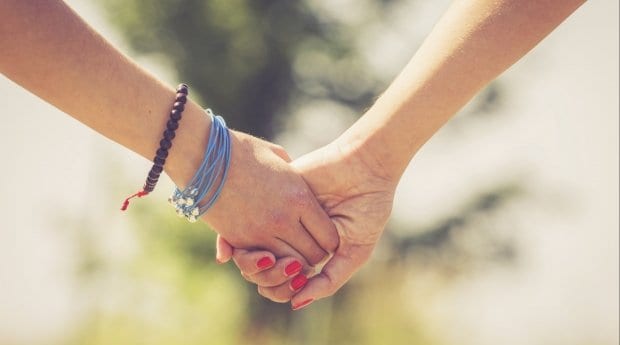“I should have buried you after your birth,” Annabelle says her father responded when she came out to him.
“Do you expect us to find a girl for you to get married to now?” her mother asked, perhaps with a hint of humour.
I meet Annabelle, Alex, Sana and Nisha (all of whom asked Daily Xtra to change their names to protect their safety), on the sixth anniversary of the founding of the queer not-for-profit organization O in Lahore, the capital of the Pakistani province of Punjab. Backed by the Lahore Queer Collective, O, which Alex co-founded, provides a safe space for queer women in Lahore to meet, socialize and engage in research and activism.
It’s extremely difficult to be a woman in Pakistani society, let alone a queer woman, they tell me.
Women’s voices are rarely heard, their faces rarely seen. In most traditional Pakistani families, women are expected to stay at home, get married and have children. By not identifying as straight, these women are challenging the gender and social norms of the system in which they live.
“What are people going to say? You don’t care about our honour.” That’s the way Nisha’s mother — who is a good person, Nisha repeatedly says — reacted to her daughter coming out.
Sana’s sister had had relationships with women as well so when Sana came out to her, her sister responded, “Our parents have to have straight kids. If you’re the gay one, then I have to be the straight one.” When Sana insisted that was not true, her sister replied, “Why should they have to put up with the tragedy of having two gay children?”
It took Alex a long time to confidently call herself a lesbian because, she says, “the idea of a being a lesbian was too notorious.”
It wasn’t until she moved from Dubai to Pakistan in 2002 that she began to really explore her sexuality. She found yahoo groups online for queer people, and eventually met other gay women.
“I was very surprised that these women were proud of calling themselves women, but they were like me . . . and they called themselves lesbians,” Alex says.
“There are lots of us out there, especially here in Lahore,” she says now. “We’re not the only ones.”
Still, being openly gay and challenging gender norms isn’t easy in Pakistan.
Pakistani law prohibits “unnatural intercourse” but convictions are rare, the women say, primarily because they’re hard to prove. “The law isn’t the problem,” Sana says. “Society and stigmatization are.”
Corrective rape still occurs in Pakistan, the women tell me, usually within the family. Some women choose to enter a marriage of convenience with a gay or bisexual man, but that too can have its problems. As Sana says, “a man’s marriage is very different from a woman’s marriage,” where the woman is expected to do all of the housework, cater to her in-laws and care for any children, as the man may pressure her to continue the family line.
Both Alex and Annabelle have suffered economically because of their sexual orientation, as well. Annabelle has been evicted from her home and fired twice after blogging about being gay. One CEO reportedly told her, “You are morally corrupt. We are suspicious of your character, your activities, and what you do.”
Alex was given an ultimatum at her work: change her appearance (grow her hair, wear traditionally female attire) or get fired. “People will say, ‘This is a place where a lesbian works.’ We don’t want that reputation!” her boss reportedly told her.
Ironically, Pakistan’s patriarchal culture means presenting as a butch lesbian can sometimes be easier than being femme.
“This is a very masculine society,” Alex says. “If you act like a man, you’re considered somebody worth listening to.”
But that can be exhausting, Annabelle says. “You need to be so aggressive to get things done. Sometimes you just find an excuse not to leave the house.”
Looking masculine can backfire too. Sana explains that, in Pakistan, men are not supposed to touch women at all. Yet she has witnessed several men brushing up against women and even trying to touch them, then saying, ‘Oh, I thought you were a guy!’ if confronted.
“In that way they make you feel uncomfortable for not looking feminine, while at the same time reminding you that, guess what, you are a woman and I know exactly where to touch you,” she says.
Sana remembers hearing stories of her father’s aunt and the scandal that swept through their rural town when she ran away with her partner from an arranged marriage in the 1960s. Eventually, Sana says, her aunt was accepted at family gatherings with her partner.
“If my aunt could do that in the 1960s, then why is it that today I’m supposed to shut myself down and hide myself in corners?” she asks.
Sana believes the situation is getting worse for lesbians in Pakistan, largely because of the country’s growing religious fanaticism and nationalism — a combined lens through which the people in power try to rewrite history, she says.
The resulting erasure, she says, “mires honest discussions in ignorance.”
She speaks wistfully of the used queer books that can still be found if you know where to look. Obviously, since they’re used, they must have belonged to people in the past, she says. “We think we’re progressing, but now we can’t have those books on our shelves.”
Pakistan is an increasingly patriarchal, oppressively religious society, these women tell me.
“Really, all our hopes lie in this country becoming secular,” Sana says.
Editor’s note: This story was amended on June 2 to reflect that of the four women profiled only Alex co-founded of O.

 Why you can trust Xtra
Why you can trust Xtra


